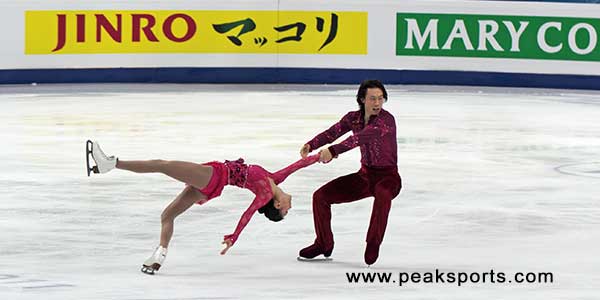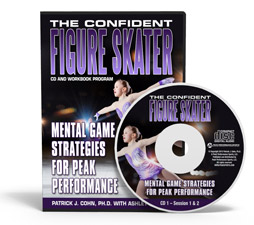
In Order to Perform You Must Believe
What do you think is possible and what do you think is impossible?
In the sport of figure skating, your belief about what can be possible often sets the bar.
You simply can’t raise the bar if you believe it’s not possible. However, I’m not suggesting that you should set unattainable goals.
The big reason athletes should set goals is to accomplish something they haven’t accomplished in the past or to achieve a higher standard.
For example, you might want to skate a new program with more difficult jumps but you don’t believe you can successfully perform the jump.
And then you may not work hard to develop the strength and technique necessary to perform the jumps. Then when competition comes around, you won’t have confidence in your ability to execute a clean program.
In order to develop confidence to perform higher level jumps or more technical and complex routines, you must find the evidence to support that you can perform the jumps and perform them consistently at a high level.
That evidence can come in many forms:
* The fact you work hard in practice.
* A new strength training regimen.
* Past successes and experience.
* Your level of preparation.
* Your ability to learn new skills quickly in the past.
* The addition of mental skills training.
* Other skaters of similar caliber performing those skills.
As mentioned earlier, your belief in what you think is possible sets the bar. If you think you can not pull off a skill when competing in an event, the doubts in your mind will hold you back and often lead to under-performance.
Doubts aren’t reserved for novice skaters. Twenty year-old, Russian figure skater Evgenia Medvedeva is working on adding a quadruple jump to her program even though it is an extremely difficult and risky element.
Even though Medvedeva is a two-time world champion and Olympic silver medalist, it doesn’t mean doubts don’t creep into her mind.
MEDVEDEVA: “For me when I feel that’s it difficult to jump triples or triple-triples I’m just looking at Sasha [Alexandra Trusova]. I’m just looking at Anna [Anna Shcherbakova]. Those small and tiny girls are doing quads and they do it amazingly. And I can’t do triples? Sure, I can! Because I have been [competing] for more than 10 years.”
Medvedeva uses her younger teammates as both motivation and evidence that
she will be able to add this component to her skating repertoire. If her less experienced teammates can successfully perform quads, then surely it is possible that Medvedeva can learn the skill.
Believing you have the ability to add bigger jumps to your program is the first step to making it happen.
Confidence and Performing Challenging Skills
First, list the reasons you have to execute a new skill or jump. What strengths and abilities can you draw from that makes you think you can execute a difficult skill?
Another way to boost your belief is to visualize performing the skill successfully. Prior to each practice visualize performing the skill correctly. Do the same after practice and before bed.
The more you “see” or feel yourself performing the skill successfully, the more possible it will seem when you practice and the quicker you will learn the skill.
Related Sports Psychology Articles
- Do You Or Your Team Have The Comeback Mindset?
- How to Grow Competition Confidence
- How Preparation Boosts Confidence
*Subscribe to The Sports Psychology Podcast on iTunes
*Subscribe to The Sports Psychology Podcast on Spotify
Download a free sports psychology report to improve your mental game!
Learn more about our one-on-one mental game coaching.
Discover Mental Strategies For Peak Performance!
 You (or your athlete) might be the most skilled figure skater and train harder or longer than anyone else, but if you can’t take your practice performance to competition, you simply will not reach your true potential in figure skating.
You (or your athlete) might be the most skilled figure skater and train harder or longer than anyone else, but if you can’t take your practice performance to competition, you simply will not reach your true potential in figure skating.
Learn the top 8 mental game lessons to improve focus, composure, and confidence!
The Confident Figure Skater: Mental Game Strategies For Peak Performance
Discover proven mental game secrets to unstoppable confidence in practice and competition.
- Figure Skaters: Get the mental edge by learning how to take control of your confidence, mentally prepare for competition, and perform with composure under pressure.
- Coaches: Boost your figure skater’s confidence using simple, proven mental strategies.
- Parents: Help boost your athlete’s performance. Don’t let their mind hold them back any longer.
- Mental Coaches: Learn a proven system for helping your athletes boost mental toughness.
The Confident Figure Skater: Mental Game Strategies For Peak Performance
